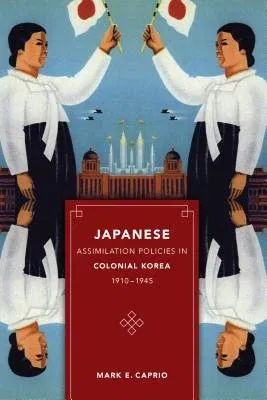From the late nineteenth century, Japan sought to incorporate the Korean
Peninsula into its expanding empire. Japan took control of Korea in 1910
and ruled it until the end of World War II. During this colonial period,
Japan advertised as a national goal the assimilation of Koreans into the
Japanese state. It never achieved that goal. Mark Caprio here examines
why Japan's assimilation efforts failed. Utilizing government documents,
personal travel accounts, diaries, newspapers, and works of fiction, he
uncovers plenty of evidence for the potential for assimilation but very
few practical initiatives to implement the policy.
Japan's early history of colonial rule included tactics used with
peoples such as the Ainu and Ryukyuan that tended more toward
obliterating those cultures than to incorporating the people as equal
Japanese citizens. Following the annexation of Taiwan in 1895, Japanese
policymakers turned to European imperialist models, especially those of
France and England, in developing strengthening its plan for
assimilation policies. But, although Japanese used rhetoric that
embraced assimilation, Japanese people themselves, from the top levels
of government down, considered Koreans inferior and gave them few
political rights. Segregation was built into everyday life. Japanese
maintained separate communities in Korea, children were schooled in two
separate and unequal systems, there was relatively limited
intermarriage, and prejudice was ingrained. Under these circumstances,
many Koreans resisted assimilation. By not actively promoting
Korean-Japanese integration on the ground, Japan's rhetoric of
assimilation remained just that.

